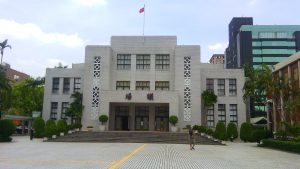Could China seize Taiwan? This critical issue affects geopolitical stability and raises international concerns about China’s authoritarian expansion. China’s military actions toward Taiwan are a constant topic of debate. During Taiwan’s presidential elections, China responds with intense military threats. When then-U.S. House Speaker Nancy Pelosi visited Taiwan in August 2022, China escalated tensions with military exercises, using missiles and aircraft to push Taiwan to the brink of conflict.
Beyond military means, China may seek to annex Taiwan under the guise of “peace.” This approach would save costs and spare China the stigma of overt military aggression. However, “peaceful annexation” would sacrifice Taiwan’s democracy and political autonomy. This is the approach Beijing has adopted in Hong Kong: Dissent is crushed, and civil society is dismantled under Xi Jinping’s authoritarian rule. No deviation from the central government’s narrative is tolerated.
On May 17, as President Tsai Ing-wen’s second and final term neared its end, the international community widely praised her for maintaining meaningful peace in the Taiwan Strait despite numerous crises. However, China’s regime may have already been planning its next offensive against Taiwan.
The opposition Kuomintang (KMT) and the Taiwan People’s Party (TPP), which together hold a majority in the Legislative Yuan, forcibly passed a bill expanding legislative power, leading to intense physical clashes with minority ruling party members. This may seem like another routine spectacle in Taiwan’s legislature, and most international media have interpreted it as such. Yet, when viewed in the broader context of China’s long-term strategy to undermine Taiwan’s democracy, the situation appears grim.
The American Enterprise Institute (AEI) has explored scenarios where China forces Taiwan into submission without using military force. One scenario mirrors current conditions: The Democratic Progressive Party (DPP) holds executive power but loses its legislative majority. AEI posited that the legislature could pass a law creating a “national peace commission” to lead negotiations with China for a peace agreement. Despite the DPP president’s belief that this harms Taiwan’s sovereignty, the majority of legislators, under Chinese pressure, would follow legal procedures to oust the premier and successfully impeach the president. Ultimately, driven by the legislature, a cross-strait peace agreement would be signed, resulting in China’s peaceful annexation of Taiwan.
The AEI scenario might not account for all conditions and factors, but it highlights a critical point: China could potentially leverage the legislature to undermine the DPP’s administration and bring Taiwan under its control without military aggression.
The KMT currently holds the most legislative seats although short of a majority on its own. Notably, a sizable KMT delegation quickly traveled to China after taking office. Now, less than six months into their term, they are pushing through an expansion of legislative power. This aggressive move has provoked over 10,000 Taiwanese citizens and groups to gather outside the legislature in protest.
Expanding legislative power could indeed enhance control over the new Taiwanese President Lai Ching-te and his administration, especially given the significant flaws in the forcefully passed bill. For instance, the KMT and TPP have enacted a law on “contempt of the legislature.” If an administrative official is found by legislators to be withholding information during a legislative inquiry, five or more legislators can directly impose fines on the official, with the ability to do so repeatedly. Even sensitive national defense and foreign affairs information must receive approval from the legislative chair to remain confidential.
The controversy also extends to the poor quality of the legislative process. On the final voting day, the KMT and TPP revealed their jointly drafted bill, making previous versions mere distractions. The TPP caucus leader even arrogantly told the media that the actual content of the bill was “top secret.” This maneuver mirrors China’s “legal blitzkrieg” strategy used four years ago to impose the Hong Kong National Security Law by directly inserting it into Hong Kong’s Basic Law. Before its implementation, no external sources knew the law’s content. By keeping the bill’s details hidden, the public and civil society were unable to react, review, or oppose it in time. This legislative blitzkrieg not only slows down civil society’s response but also underscores its authoritarian, anti-democratic nature.
Given Taiwan’s current conditions, its future is not entirely bleak. First, President Lai’s constitutional powers allow him to counteract the legislature’s actions, such as refusing to promulgate laws or, under certain conditions, dissolving the legislature. Second, Taiwan’s civil society, with its long-established organizational capabilities, has rapidly mobilized significant gatherings to pressure the legislature.
However, China is also evolving. How enticing is the idea of taking Taiwan without firing a single shot? How can Taiwan successfully unite to resist external threats? This is the challenge facing Taiwanese society and a critical responsibility for Lai to address and manage carefully.

































